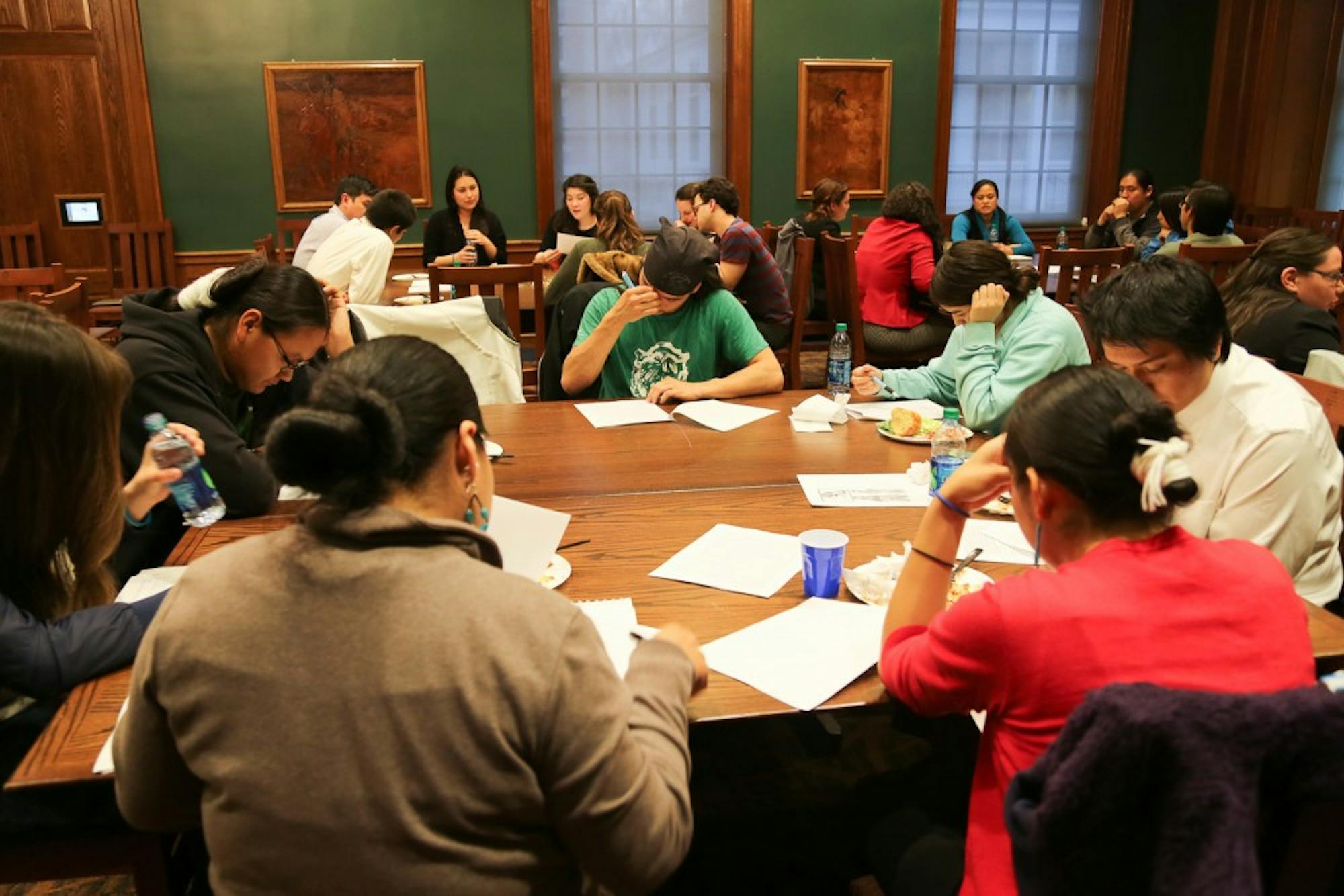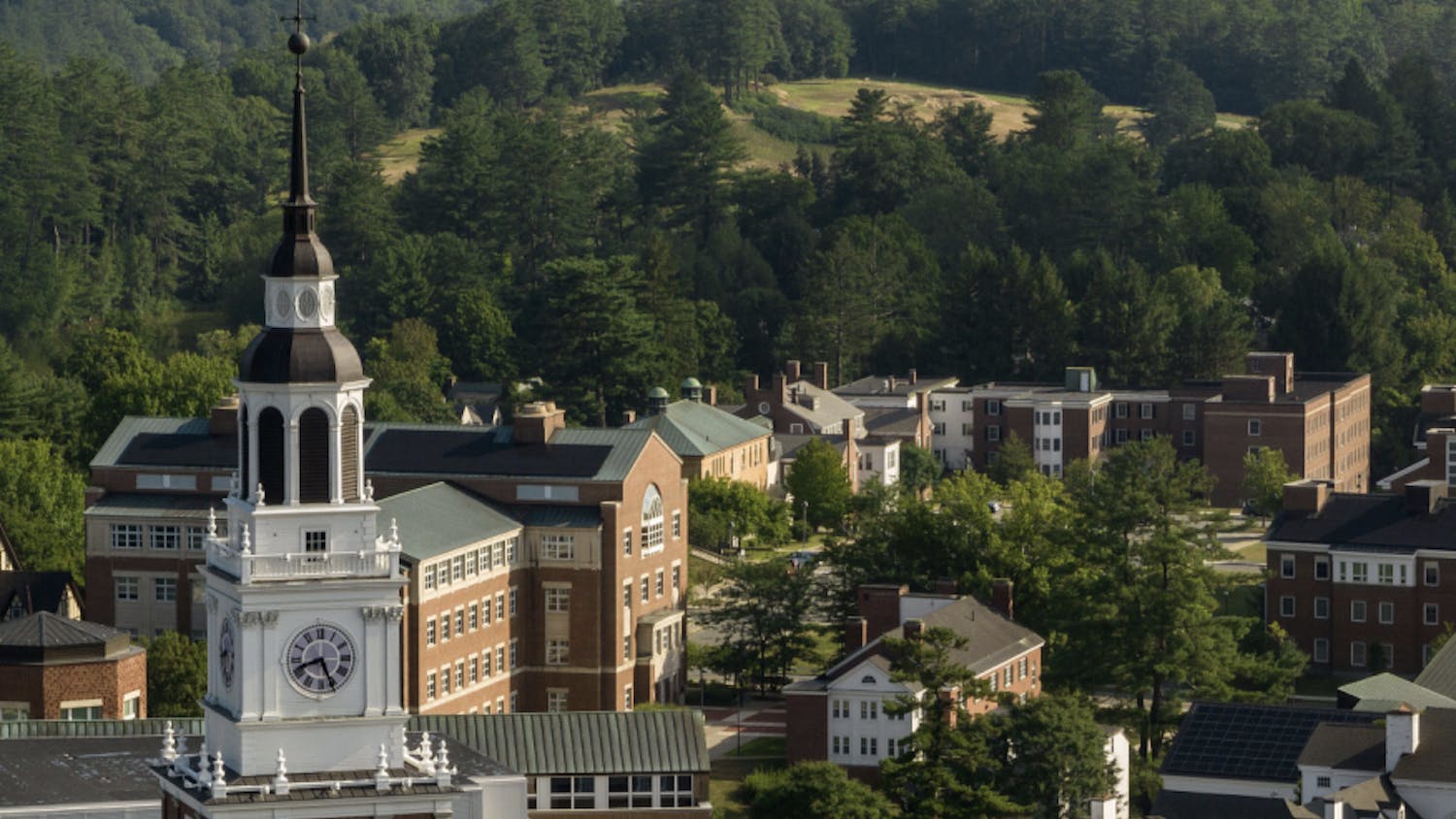A dinner discussion centered on the finding that one in three Native American women will experience sexual assault or attempted sexual assault in her lifetime brought together students, faculty and staff over poetry and discussion on Wednesday evening. The event, hosted by Alpha Pi Omega sorority, sought to explore the impact of sexual violence against Native American women in both Native and non-Native communities.
About 30 people attended the event, which began with a prayer. Though organizers planned to hold a candlelight vigil on the Green following discussion, rain kept attendees inside. The event, held at 6 p.m. in Paganucci Lounge, concluded with a performance by the Rockapellas.
Autumn White Eyes ’14 and Jackie Eagle ’15, two event coordinators, said they sought to raise awareness of a major issue for Native American women in Indian country.
The issue, Eagle said, has personal relevance for her.
“I have two sisters, so if you go by the statistic one-in-three, one of us will be raped in our lifetime because we are Native American,” Eagle said.
Christina Goodson ’14, another event coordinator, noted that Native women are 2.5 times more likely to experience sexual assault than the average U.S. woman.
During round-table discussions, attendees talked about the Violence Against Women Act, which allowed Native American tribes greater authority to prosecute crimes of domestic and dating violence in Indian country after it was reauthorized last year.
Conversation touched on the hypersexualization of Native women and how Native masculinity has changed over time. The groups also talked about sexual violence at schools and ways to combat sexual violence in Indian country.
Discussion participants could educate each other on their individual perspectives, Maggie Seawright ’17 said. She added that she enjoyed seeing how many attendees were not members of Dartmouth’s Native American community.
“I think it was really inspiring because it reminded me of the problems I’ve come in contact with at home, and merged them with the problems we come in contact with here,” Seawright said. “It helps me think about what I want to do with my future, especially as a Native woman.”
Zach Cooper ’17 said the conversation was personal for him because of his younger sisters. He was shocked to learn of the sexual assault statistics, Cooper said, and it scared him to hear about how the issue could affect his family.
Kayla Atcitty ’17 said that the poems brought her to tears because they referenced prevalent issues on reservations like the one on which she grew up.
Kapiolani Laronal, the director of the College’s Native American Program, said she believed the event was powerful.
“As an administrator, it’s really nice to see our Native students get together to discuss this really important issue,” Laronal said. “I think in particular because it’s so prevalent in our communities, I was deeply impacted by this evening and what they did.”
Due to the discussion’s sensitive nature, Monica Stretten ’15, a sexual assault peer advisor, said she was available outside the room in case the topic triggered an attendee.




